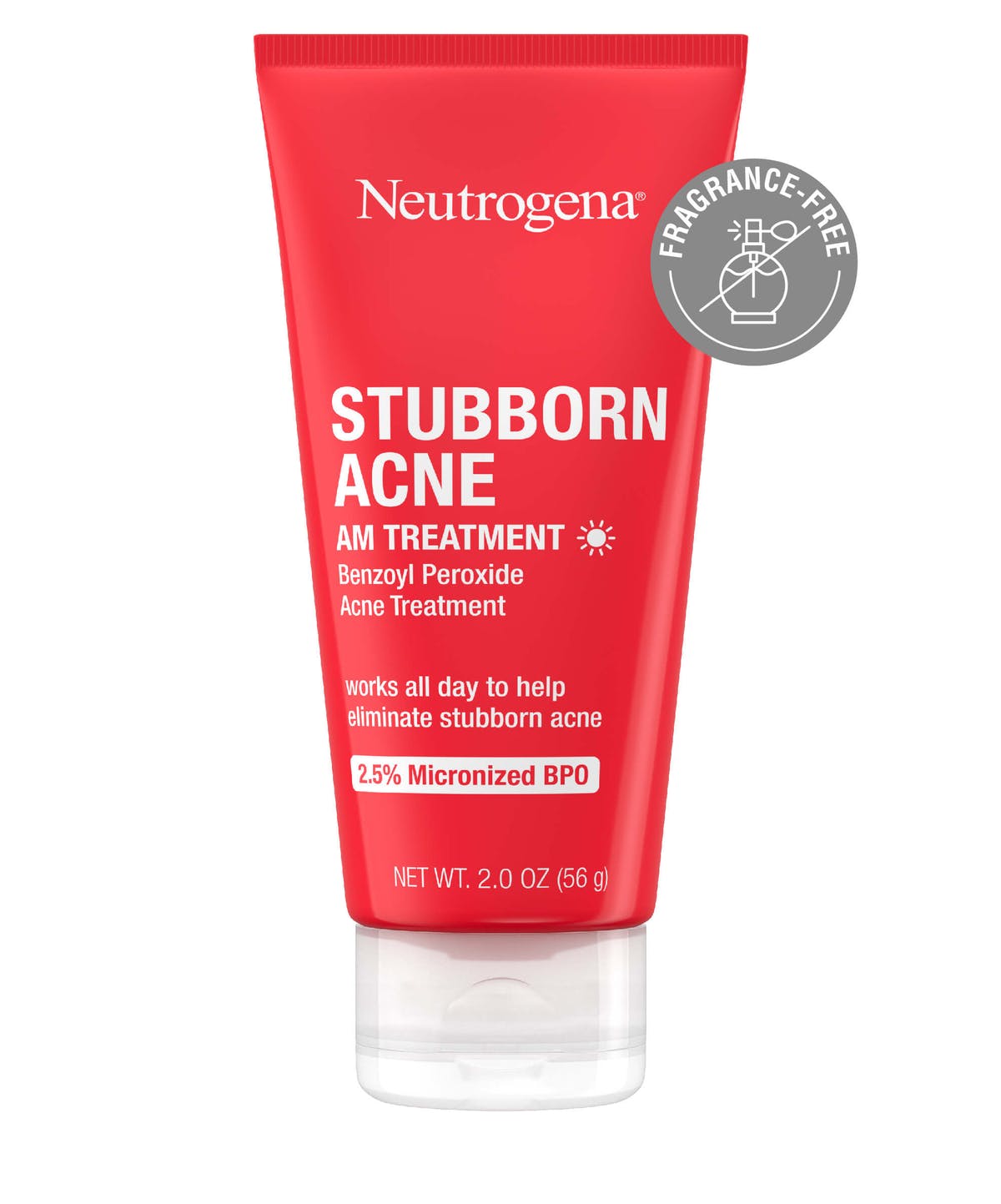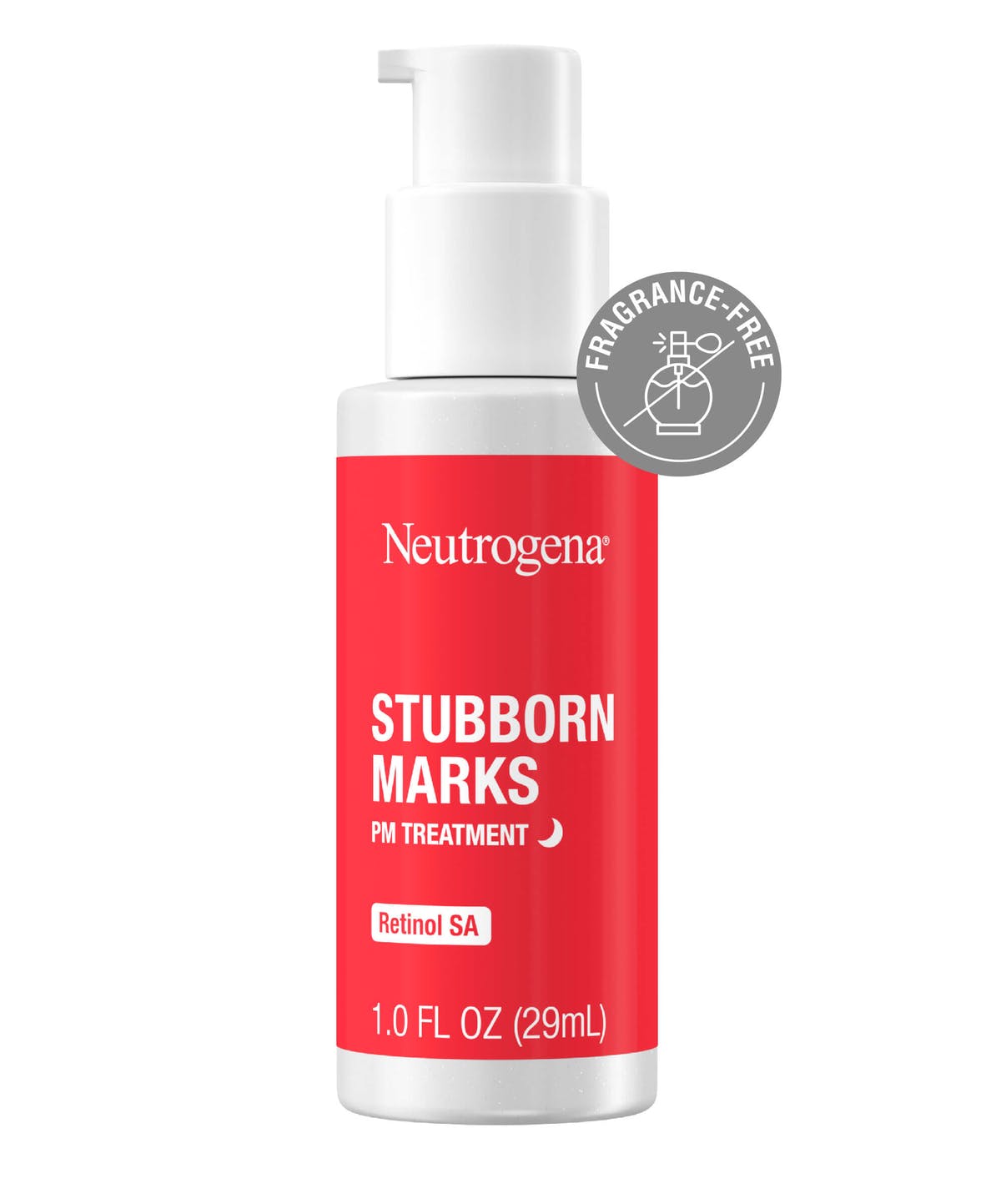#Maskne Is Harder On Black & Brown Skin — Here’s Why
For those with acne-prone skin, breakouts are often only part of the equation — the residual hyperpigmentation that follows, particularly for those with Black and brown skin, can feel like a lingering reminder that you're not totally "in the clear." And while the world has mostly moved past lightening creams with concentrated bleaching properties (which can result in the discoloration of surrounding areas, not to mention potentially serious adverse long-term effects), many are still seeking out the most effective way to reduce these darkened spots. This is especially true with today’s increased use of face masks — because, #maskne is REAL.
AdvertisementADVERTISEMENT
But a bit of good news: While it’s commonly thought that Black skin is more prone to acne scars, that is simply not the case. “Many of my Black clients come in complaining of ‘acne scarring,’” says Dr. Elyse Love, a New York City board-certified dermatologist who specializes in Black skin. “But when we think of scars, we think of them being permanent, so I reeducate my patients to understand that these are not scars. What they’re seeing is a result of hyperpigmentation, which is more easily treatable.”
Luckily, Dr. Love says that acne, maskne, and hyperpigmentation don't have to be permanent nuisances, and with winter around the corner, your skin could be seeing some relief. In partnership with Neutrogena, we asked Dr. Love to explain the keys to prevention, how to treat a sudden breakout, and the magic ingredient anyone with dark skin should have in their stash.
Black skin does not have more melanocytes.
Contrary to popular belief, everyone has approximately the same number of melanocytes — those protective pigment-producing skin cells. "But in darker skin tones, those melanocytes are more active," says Dr. Love. "When there is inflammation of the skin — which often occurs with acne — the melanocytes release more pigment. That's why dark spots arise, and the darker your skin tone, the darker the spot will probably be.”
AdvertisementADVERTISEMENT
However, it does tend to be oilier, which could lead to acne.
While there are many different causes of acne, certain factors can make you more prone to clogged pores and breakouts — such as having naturally oily skin. “There's a lot of data going into actually looking at the differences between a variety of skin types, and Black skin does, in fact, tend to be oilier," Dr. Love confirms. "That oiliness increases the chances of developing acne.”
Maskne also affects dark skin differently.
“The way that I think of maskne is almost like workout-induced acne," Dr. Love says. "Consider this: All of those microbes that are in your breath are now being accumulated and bounced back to your skin. In addition, you’re also sweating underneath your mask, so all of that moisture is accumulating." In this way, maskne is very similar to bacterial acne caused by exercise.
Dr. Love notes that maskne can be worse for Black skin, because of the lingering, post-inflammatory hyperpigmentation. "If you have a lighter skin tone and the mask is causing these breakouts, I expect those breakouts to decrease tremendously as we transition to cooler weather," she says, pointing to the fact that less heat means less sweat and moisture trapped under your mask, resulting in fewer breakouts. "But for darker skin, while breakouts may get better with the cooler months, you still have that hyperpigmentation that takes several weeks to months to phase out on its own.”
AdvertisementADVERTISEMENT
You can prevent hyperpigmentation with a consistent skin-care regimen.
“I take a more aggressive approach to acne with my clients with darker skin, because prevention is the number-one way to avoid hyperpigmentation," Dr. Love says. She recommends incorporating active ingredients like retinoids and benzoyl peroxide into your skin-care routine, which can slow down pigment production. "It's also important to constantly wear sunscreen in order to minimize sun exposure and its effects, which can trigger melanocytes further," she says.
Make sure you're applying your acne-fighting products correctly.
“Benzoyl peroxide is a highly effective ingredient for dealing with acne because it kills bacteria beneath the skin and protects that top layer of the skin from being susceptible to breakouts," Dr. Love says. However, there are certain things to keep in mind before you incorporate the ingredient in your routine.
"If you were to use a benzoyl peroxide product that wasn’t formulated correctly, or if you applied it too frequently, that could irritate the skin and cause hyperpigmentation," Dr. Love says. "I would say, especially with stubborn acne, use a product formulated with 10% or less benzoyl peroxide and only use it once a day." If you have sensitive skin, Dr. Love suggests starting out by using it a few times a week, then gradually increasing to everyday use.
Our pick: Neutrogena’s Stubborn Acne AM Treatment. With a conservative amount of micronized benzoyl peroxide — 2.5%, to be exact — this leave-on treatment is safe enough to use every morning. Dermatologists love this for reducing breakouts and irritation, which ultimately prevents hyperpigmentation. Your skin won’t feel dried out or tight, and there’s no fragrance, oil, or parabens, making it ideal for sensitive skin.
AdvertisementADVERTISEMENT
Dr. Love stresses the importance of using a lower percentage of benzoyl peroxide to avoid the potential bleaching of towels and clothing. “These side effects are more common with higher percentages of benzoyl peroxide, while the 2.5% is typically well tolerated, with less risk of bleaching,” she explains. (To be clear, benzoyl peroxide only comes with the risk of bleaching hair and clothes, not skin.)
Use the right cleanser — & don't forget to moisturize.
Since benzoyl peroxide can make your skin sensitive and more prone to irritation, "you want to use a cleanser that doesn’t make your skin feel dry after you wash it." Dr. Love says. "But you also want to stay away from products with high oil content so that they don’t clog the pores." After that, be sure to layer on moisturizer — particularly in the winter. "You want to incorporate a heavier, water-based moisturizer into your routine and a product with hyaluronic acid to trap in moisture."
Use retinol to treat existing hyperpigmentation.
“My favorite ingredient for post-acne pigmentation is retinol and retinoids,” says Dr. Love. “This ingredient is excellent because it helps to prevent acne breakouts, exfoliates the skin to reveal glowing skin, helps to fade dark marks, and stimulates collagen production for anti-aging effects. It really is the wonder treatment of dermatology." Dr. Love recommends adding a retinol or retinoid, such as Neutrogena Stubborn Marks PM Acne Treatment, to your routine on a nightly or bi-nightly basis.
AdvertisementADVERTISEMENT









